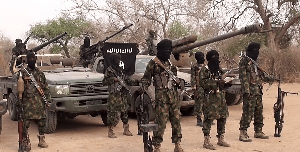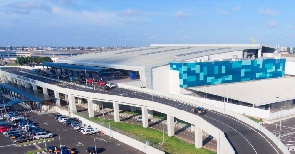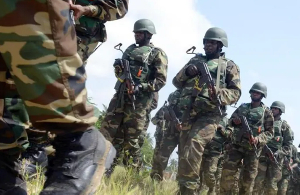I am not a very religious person but I regularly pray for one thing: That I will never get a stroke or any serious accident on Saturday.
Why? Simply because of the use, but mostly abuse of alarm lights on vehicles in Ghana.
First reason is that on Saturday when you are in need of an ambulance to rush you to the hospital in case of an emergency only 1/3 of the ambulances are available for medical reasons and 2/3 is in use for funerals.
Secondly, even when your relatives or friends can find an ambulance to rush you to the hospital, nobody respects the alarm lights and sirens used because everybody assumes that the ambulance is on its way to the cemetery to bury someone who died months ago.
Let’s sum up who is supposed to use alarm equipment and after that I will give a brief overview of who else and in what situation they are used:
Police: Blue alarm lights and flooding lights and sirens
Fire service: Blue and amber lights and sirens
Ambulances: Blue, amber and green lights and sirens
Salving vehicles: Yellow lights to warn in case of hazardous situating Exceptions in many countries are: Army convoys and security services.
All above vehicles may when using their lights can: Drive by a red light, drive over traffic separating marks, drive on places where others may not like a tram or bus way and sidewalks park and stand in places where others cannot. But they can use it only if: The use of the exemption is necessary in view of the situation.
The Road safety is not jeopardized.
The rules of the Traffic Police Directive are complied with. Others than the mentioned may not use a floodlight or siren on your car because the use is restricted only to emergency services in emergency situations such as police, ambulance and firefighters, they may use their lights only for urgent tasks.
Knowing Ghana and Ghana’s laws I am sure that similar laws on the use of alarm lights exist in Ghana as well.
So I can safely conclude that the following people and institutions are in breach of our laws on a daily basis:
MPs and Ministers driving to parliament or office High and middle ranking police, immigration, army officers on their way to work Police mechanics crossing cantonments traffic lights on their way to repair shop.
Funeral cars Ambulances used for funerals Armored cars transporting money to banks and other institutions Any emergency vehicle not on his way to an emergency
I remember that several years ago former president Kuffuor was hit by a private car on his way into town. I don’t want to enter the discussion about the person’s motivations or being in breach of the law but just want to ask the following questions:
Did the President (or his escort) had any legal reason to cross the traffic light with high speed and did the police use their alarm lights for any of the legal reasons mentioned above?
Was the use of alarm lights and sirens necessary in view of the situation; was the Road safety not jeopardized, and were rules of the Traffic Police Industry Directive complied with?
I don’t see lateness for an appointment or to work by presidents, ministers or high ranking officers being mentioned in the law. The reason I write this is because if law makers and people who are supposed to maintain the law are not going by the law, what should others do?
It is a fact that ordinary road users have started to install blue/red lights in front of their car without any legal basis to do so.
It has come to a point that if a police car, fire fighter or ambulance is on its way to an emergency situation that other road users don’t make way because they all think here is another one abusing the system for its own selfish interest.
I ask everybody who can have any influence on this situation to assist ringing all alarms (not alarm lights) to wake up our nation and save people from dying because of delays to the hospital, burning of houses on fire and needless waiting on police in case of an emergency.
Opinions of Wednesday, 30 August 2017
Columnist: Nico van Staalduinen















